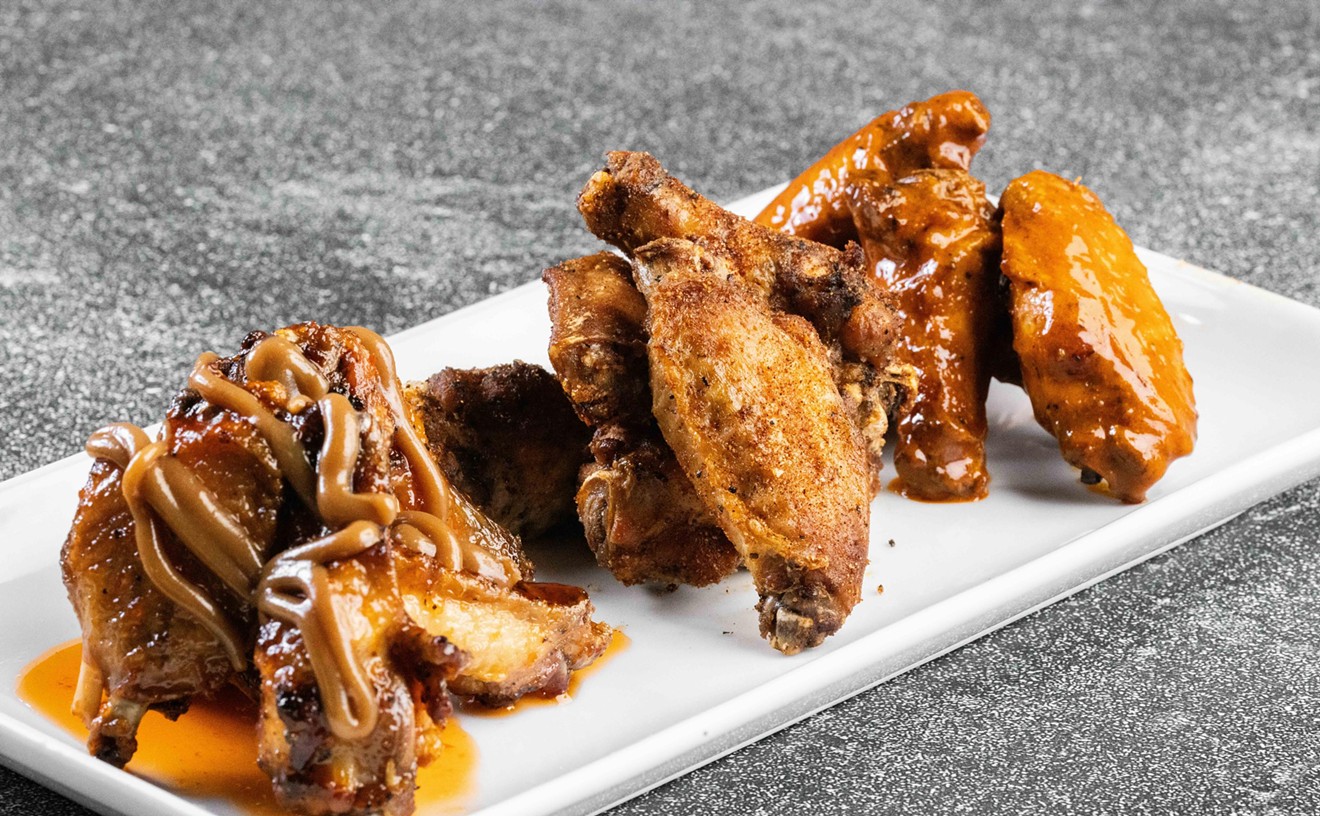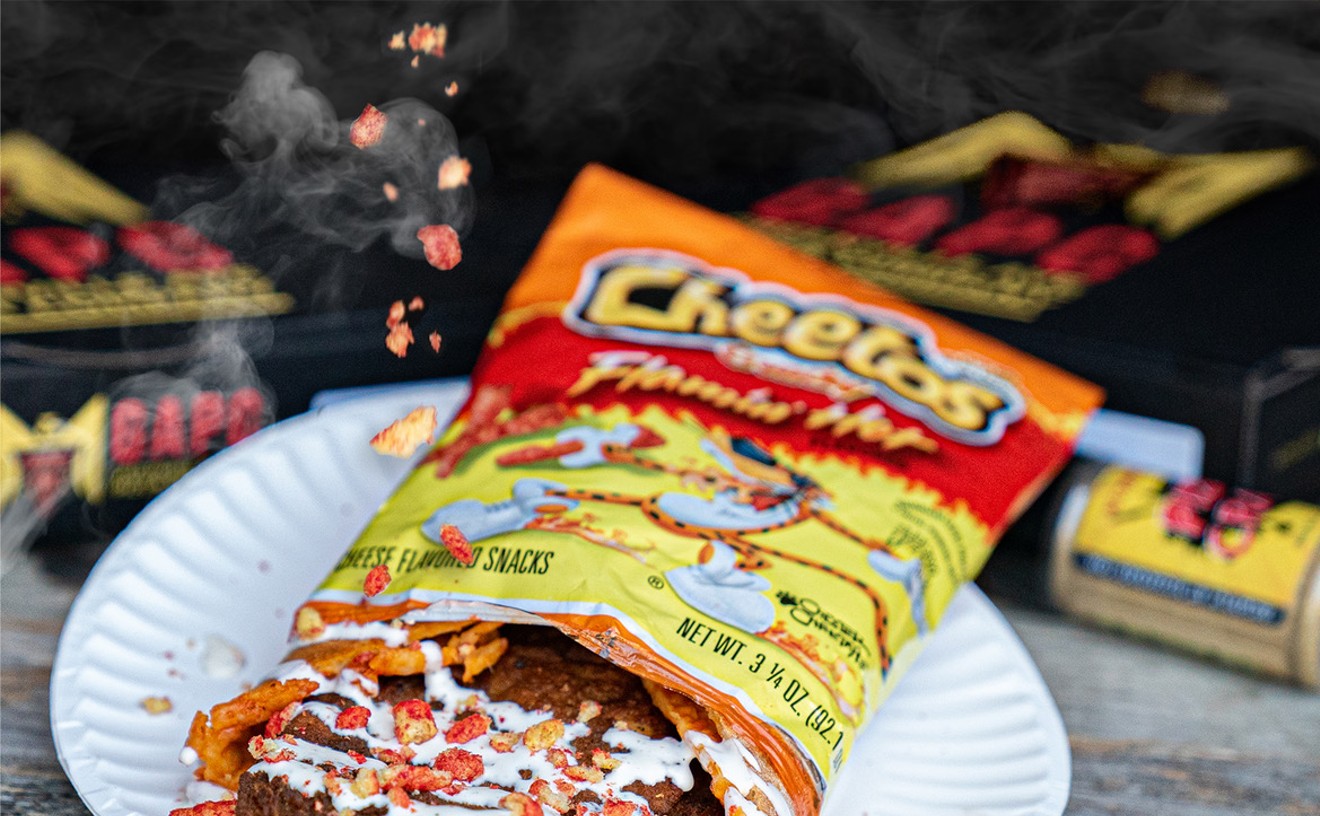House Bill 2029, passed unanimously by the Senate and with only one "no" vote in the House during the last regular session, was only one sentence long and deceptively straightforward. It exempted scales used to weigh food for "immediate consumption" from regulations that required the scales to be regularly inspected and their owners to pay an annual $35 state fee to get a certification sticker. Both the sticker and the scales had to be visible to customers.
It became known as the "BBQ bill" because barbecue is most commonly sold by weight, and the restaurant industry was the impetus for the law, although it also affects places like frozen yogurt shops that sell by weight.
Texas Agriculture Commissioner Sid Miller opposed the bill, and since it fell under the Texas Agriculture Code, his department had the rule-making authority to interpret it. The TRA says the department's rule-makers added three words to essentially guts the bill. "Immediate consumption" came to mean consumption “on the premises.”
So if a customer takes his hot brisket to go for lunch or walks out of the fro-yo shop with cone in hand, the presumption is that it might not be eaten immediately enough to square with the law, according to the agriculture department's interpretation.
"It negates the legislative intent of the bill," the restaurant association's CEO, Richie Jackson, says.
Legislative intent isn't the issue, counters Mark Dallas Loeffler, head of communications for the agriculture department. The department had to write a rule based solely on the 40 or so words of the bill, which meant coming up with a definition of what constitutes immediate consumption. According to the department's legal interpretation, it means the consumer eats the food at the place where he bought it.
"When an agency writes rules, it has to write rules according to how the bill is written," Loeffler says.
The fact that the department's definition coincides with Miller's opposition to the bill is not a sign that Miller was being obstructive, Loeffler says. The Legislature simply wrote a badly worded bill.
Loeffler says the department will forward the rule to the Texas Attorney General's Office for review, but he points out that there was a 45-day comment period from the day the law went into effect in September until the rule took effect, and the TRA was mum then, only speaking out when the rule went into action.
A $35 fee may seem like a small thing, but Jackson says the regulation is more burdensome than that. Not all barbecue restaurants are designed with open kitchens and counters that allow scales to easily be displayed to customers. Some have drive-up windows, and some are sit-down joints with hosts and closed kitchens. Rearranging those to meet the agriculture department's requirements could involve costly redesign, he says.
Of course, another workaround would be for barbecue joints to change their menus from price per pound to descriptions like "enough for two people.""It's just another agency coming through your back door to regulate." – Richie Jackson, CEO, Texas Restaurant Association
tweet this
Jackson says the original inspection regulation was passed at the turn of the 20th century.
"In today's setting, we just don't feel that it's needed," he says. "The consumer is much more likely to post something on Yelp or Facebook than call Sid Miller."
Ignoring the rule, though, can lead to fines for restaurateurs, usually $100 for a first offense. Restaurants that can't or won't obey the agriculture department's interpretation could be shut down.
"Why should a business have to go through that?" Jackson says. "It's just another agency coming through your back door to regulate."
Or maybe it's coming through the door to perform consumer protection, which is how Loeffler defined the department's intent.
Todd David, who along with his wife, Misty, owns Cattleack BBQ, our Best of Dallas pick for best barbecue this year, sums up his feelings about the regulation in two words: "That's ridiculous."
The Davids have their scales inspected and certified every year, and they put the scales where customers can see them, but not because the state requires it. They have their ovens and air conditioning inspected, too, he says, because that's just part of good maintenance. Besides, David says, a scale that's off-kilter could just as easily cut against a restaurant as in its favor, and having the scales where diners can see them is good business. A hungry customer who sees what an order of a half-pound of ribs gets him might opt to have another rib tossed on the pile.
"No one has ever questioned our scale," David says.
Putting scales up front builds trust between the restaurant and its customers, and in the end, he says, people will return to eat at places where the food tastes good and is served by people they like — that's something that no state inspection sticker will create.
"I don't think they're necessary," David says of the regulations. "I'm going to eat where I have a relationship with people and trust people."











